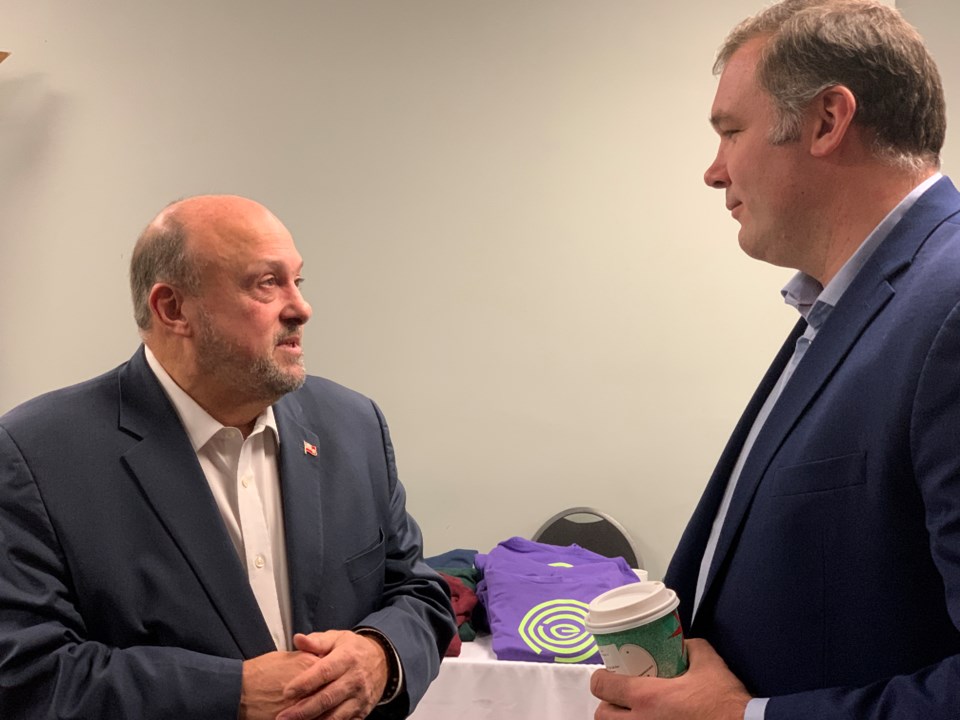Celebrating people’s success in recovery was on the menu at an event in Barrie on Saturday afternoon aimed at working to break the stigma around addiction.
The event, hosted by Edgewood Health Network (EHN), an evidence-based recovery network that includes Bellwood Health Services in Toronto, featured an afternoon of guest speakers from the 12-step recovery community, as well as local, provincial and national recovery services and partners.
Michael Tibollo, the province’s associate minister of mental health and addictions, told BarrieToday he felt it was important for him to attend the event at the Lion’s Gate Banquet Centre as he’s always believed in showing support and solidarity for people who have been marginalized or who think no one cares.
“By being here, I wanted to demonstrate that I do care, our government cares and we want to make sure that anything we do not only helps the individual, but hopefully will ripple into the community and say it does work, you can recover, and people do care,” he said.
An event like the one Saturday, he noted, helps reinforce the fact recovery through treatment is something positive and doable. That said, Tibollo acknowledged even though the country has come a long way in looking at addiction in a different light, more often than not, it’s still talked about as trying to correct a behaviour rather than recognizing addiction as an illness.
“I have been in this sector for 10 years prior to being in government and one of the things I was always most concerned about was showing people that recovery is possible and that there are treatments available. Any celebration like this really is about reinforcing the fact that if you need help, that help is there, and if you’re going to get the help, make sure you get the help from places using evidence-based modalities of treatment,” he said. “Those are the ones that are going to work. This is almost part of the process of healing. This provides the opportunity for people to come and celebrate not only their successes, but share it with (their) community.”
Doing away with the stigma associated with addiction, he added, is key.
“Addiction is an illness, the same way cancer and many other diseases (are illnesses) … We work to try to find treatment options that work,” he said. “If we keep on talking about correcting behaviours to good, and try to have that happen through the justice system or through the emergency room, we are never going to get ahead of this problem,” he said. “We have to do away with the stigma, focus on looking at this as an illness, and then ensuring we build the treatment and recovery models necessary for people to heal and get better … and it’s very, very doable.
“We would never allow a cancer patient or someone with heart disease or diabetes to not get help. Why should we deny an addict help? They are just as deserving and they need that help.”



